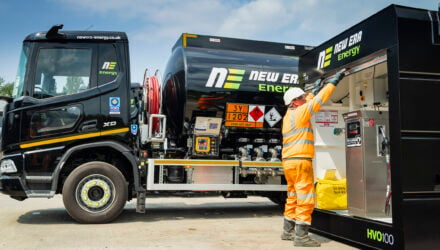
Expert Opinion: Matt Reynolds, Just Motor Law
In the latest article from Just Motor Law, Matt Reynolds looks at how rising fuel prices are leading some fleet drivers down a dangerous path
Rising fuel prices have prompted all businesses to squeeze value out of every drop of petrol.
According to the website petrolprices.com the cost of a litre of unleaded petrol in the UK rose by 40 pence from 87p to 127p between January 2009 and January 2011 – that’s almost double in two years.
Prices have since settled but the impact of such volatility is pressure on fleet businesses to closely monitor fuel efficiency by focusing on, among many things, more efficient cars and better journey management.
Drivers inevitably feel the pressure too and they are encouraged to turn the spotlight on themselves, to drive down costs by boosting miles per gallon where practicable. Legitimate and sensible tips, such as those provided by fuel-economy.co.uk, include driving smoothly, reducing revving, checking tyre pressure, turning off the air conditioning and keeping your vehicle in tip-top condition.
For some drivers the quest for optimum MPG figures borders on obsession. This near sport of maximising fuel efficiency is termed ‘hypermiling’ and although fleet managers would not endorse some of the practices, they may inadvertently be benefiting from the results.
One of the most extreme hypermiling techniques, exacerbated by rising fuel prices, is drafting – also known as tailgating or slipstreaming. The aim is to drive as close as possible behind another vehicle on motorways to cash in on the improved aerodynamics, sometimes as close as within five or ten metres.
The bigger the front vehicle the better with articulated trucks and other large vehicles considered prime targets, so the theory goes.
Science (or at least the ‘science’ quoted on online forums, websites and at least one Facebook group dedicated to this phenomenon) suggests that MPG can double in these circumstances as the front vehicle does the bulk of the work.
The downside of drafting – and this will be less of a surprise – is that it is dangerous and illegal. Drafters believe that because HGVs brake more slowly than cars, a car driver has built-in time to take evasive action and avoid a potentially fatal shunt, even taking into account a driver’s average reaction time of 0.7 seconds.
In August 2013 the UK government announced a purge on careless drivers. They can now be punished with on-the-sport police fines of £100 and three points on their licence. The changes did not create a new offence but they firmed up the way careless driving can be dealt with by police. Careless driving can also result in a disqualification.
Failure to keep safe stopping distances and indeed driving very close to the vehicle in front in order to slipstream could open up a driver to charges of careless, inconsiderate or dangerous driving, which could lead to disqualification and a prison sentence.
A case of drafting, if able to be proven, would certainly be classed as more serious than careless driving and be dealt with by the courts. If fatalities or serious injury ensued then a lengthy prison sentence is likely. This could have life-changing effects on the culprit, including loss of job and potentially friends and family.
There are certainly better and lower risk ways of seeking improved fuel economy.
Matt Reynolds is an experienced Motoring Solicitor who gets the best results for his clients. Through Just Motor Law, he defends clients in both Magistrates and Crown Courts all over the country and his expertise in motoring law is evident from his extremely high success rate in defending cases and ensuring the most favourable outcomes for his clients.







